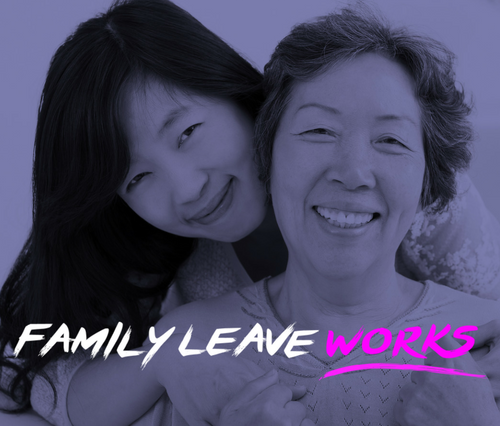Are you a New York worker who cares for a sick or elderly parent or grandparent? If so, you may be eligible to take up to 8 weeks of paid family leave in order to provide elder care for your family member starting in January 2018.
New York’s new paid family leave law will give most people who work in New York State the right to take paid time off, without risking their job or health insurance, to care for a seriously ill or injured parent, parent-in-law, or grandparent, as well as a spouse, domestic partner, child, or grandchild, when that person has a serious health need. You can take this leave when a parent or other covered family member has an illness, condition, or disability that requires either in-patient treatment or ongoing supervision or treatment by a health care provider. This includes serious mental health conditions.
For example, you could use this time to accompany your parent to treatments for a chronic serious health condition like diabetes or asthma, or to care for your parent-in-law following a surgery. You could also use this time to care for a covered family member who is incapacitated, even if not receiving active treatment, such as for Alzheimer’s or during the terminal stages of a disease. You do not need to use paid family leave all at once. If you need to, you can even take leave intermittently in units as small as one day.
Under the law, your parent includes your biological, adoptive, or foster parent, as well as your parent-in-law, stepparent, or legal guardian. You may also be able to take paid family leave to care for someone who took on the role and responsibilities of a parent to you while you were a child, even if you do not have a biological or legal relationship with them.
For more information on New York’s paid family leave law, visit us online or call our free and confidential hotline at 1-833-NEED-ABB.
This blog post is part of an on-going series of know-your-rights information on New York’s paid family leave law. This post does not address all aspects of the law and does not constitute legal advice.





